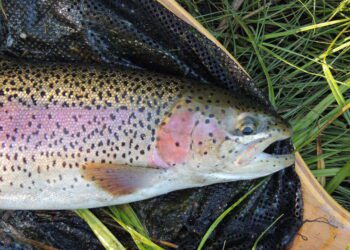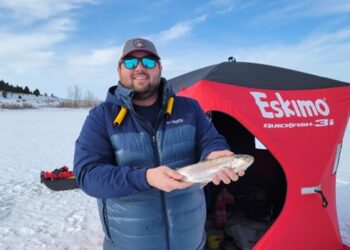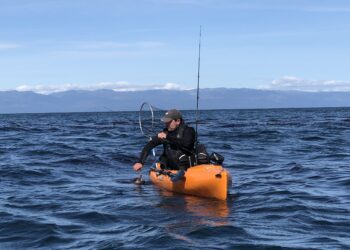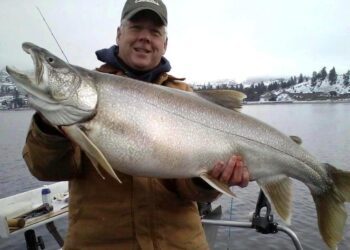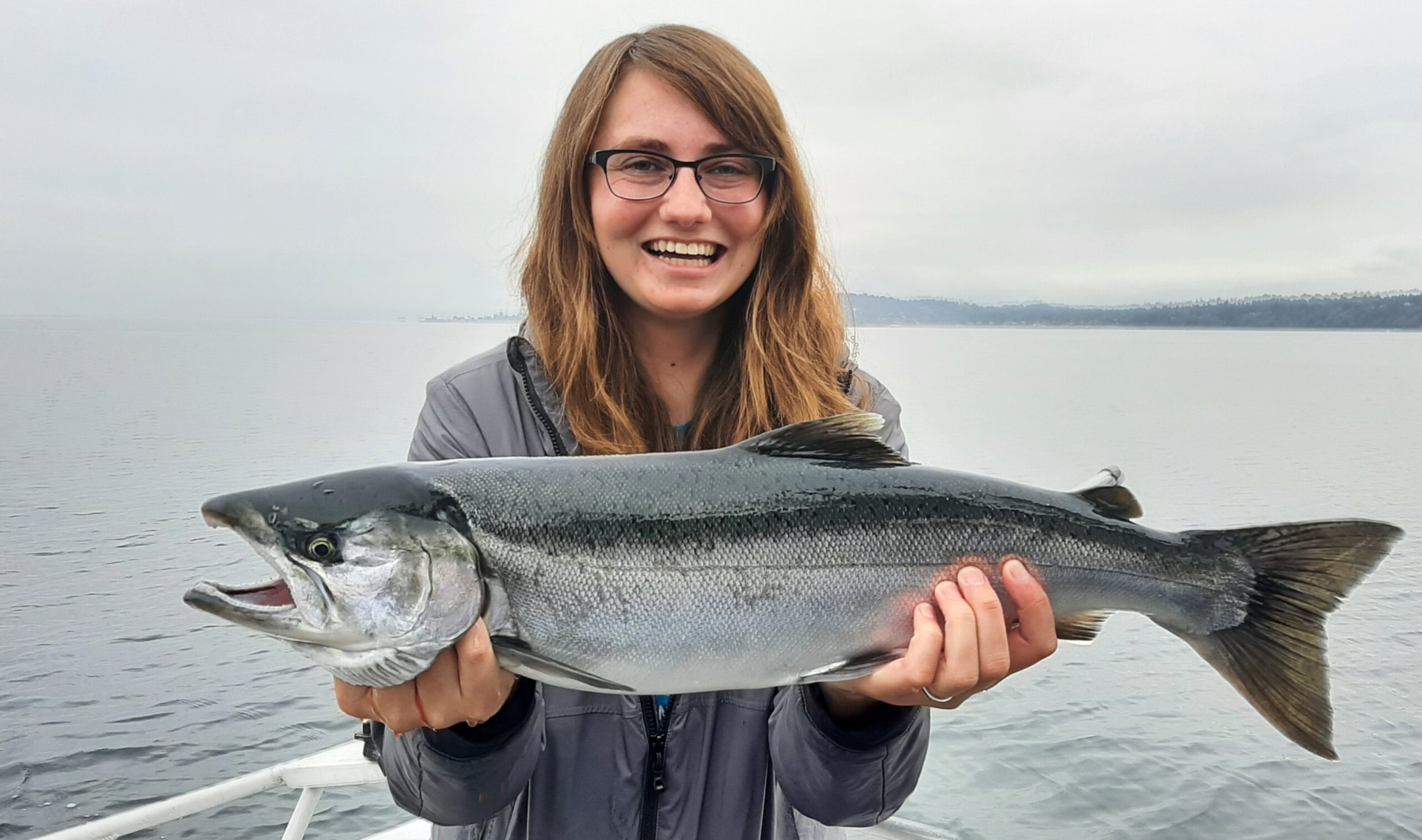Catching bass in the shallows during the spawn is a fun thing to do in the spring, but when it comes to summertime fishing, few things are more enjoyable than catching aggressive largemouth and smallmouth bass. Here are a few of my favorite ways to hook them:
Topwater Fun
There are a lot of ways to skin a cat, as they say, and there are also a lot of ways to catch a bass during the summer months. However, nothing is more enjoyable than watching a bass erupt out of the water to smash a topwater lure. The best time to fish topwater lures is early in the morning or in the evening (even after dark on a moonlit night). However, if the waters are calm, you can also have success with topwater lures anytime, especially in shaded areas or on cloudy days.
What kind of topwater lures should you use? If you are fishing an area full of hydrilla, milfoil, or lily pads, it’s hard to beat a weedless frog. Tournament angler Jeremy LeCaire favors frog lures with a white belly since that mimics an actual frog belly. Others swear by frogs that are black in color, while others believe in using a frog with, well, a frog pattern! No matter what color you use, twitching it over pads into small open areas of water can trigger many strikes.
If you are not fishing in cover, you have lots of other options. The biggest bass I ever caught (8+ pounds) was caught on a Berkley Bullet Pop popper in a frog pattern, fishing the lure near wood stick ups. Similar poppers or lures like a Zara Spook can be fished at a slow pace or a faster pace in a “walk the dog” fashion, popping left, then right, while you retrieve the lure. As an old friend once told me when it comes to speed, “Let the fish tell you what they want”.
Are there other topwater lures that work? You bet! A fairly new offering is the Whopper Plopper, which is can be cast and reeled in with a slow, steady retrieve as it gurgles along the surface. Buzzbaits retrieved at a fast pace can trigger violent strikes, and don’t forget classic lures like the Arbogast Hula Popper or Jitterbug. They have both been around for over 80 years but they both still work.
Spinnerbaits
Spinnerbaits are always a good summertime bet for bass. I personally favor a white spinnerbait for most conditions but will go with a chartreuse color if there is low visibility in the water. A ¼ or 3/8-ounce spinnerbait can be retrieved rapidly, just under the surface of the water, creating a wake. Heavier spinnerbaits between ½ to one ounce in weight can be slowly retrieved near the bottom. Both methods can be effective. Again, let the fish tell you what they want.
Crankbaits
Crankbaits are a big favorite of mine for both summer and fall bass. Many anglers mistakenly believe these lures should be fished without hitting any structure. That is a mistake. Shallow water crankbaits should bang off of wood and deeper diving crankbaits should be ticking the bottom because that contact is what triggers reaction strikes from bass. One of my favorite lures is the Berkley Digger which runs at a depth of 8 to 11 feet. If I need to go deeper, the Berkley Dredger will get down to a depth of 20 feet. As for colors, try to match the forage base. For example, a perch or bluegill pattern if that’s what the bass are eating, a reddish color if crawfish are in the lake, or blue and chrome if the bass are feeding on trout.

Lipless Crankbaits
Another confidence bait for me is the lipless crankbait. The original Bill Lewis Rat-L-Trap has caught countless bass since it was introduced in 1971. Rattle trap style lures have no bill (hence the word, lipless). They create a sharp vibration when retrieved and thanks to BB sized shot inside the lure, they create a rattling noise as well. The combination of the vibration and sound triggers bass hanging out in ambush points along weed lines or other structure such as log lay downs, beaver huts, boulders, or rocky riprap.
The lure excels in depths of two to eight feet. You can rapidly retrieve the lure and draw strikes but I prefer to pause several times when I retrieve a rattle trap, just for a quick second. I do this because following fish will often strike it when it stops in their face or as the lure begins to fall like a wounded fish. Another method is to use a Yo-Yo retrieve, fishing the lure off the bottom. This technique works best when the fish are deep.
As for what lure to use? There are a lot of lipless crankbaits out there in various sizes but my hands down favorite is the ½ ounce Berkley Warpig, which I’ve used to catch not only bass, but also walleye and other species since it was introduced a few years ago.
There’s so much more to talk about when it comes to catching summer time bass (soft plastic baits for example) but we’ll have to leave that for another time. Until then, use crankbaits, spinnerbaits and topwater lures to reel in some hard-hitting bass during these hot weather months!
John Kruse – www.northwesternoutdoors.com and www.americaoutdoorsradio.com




